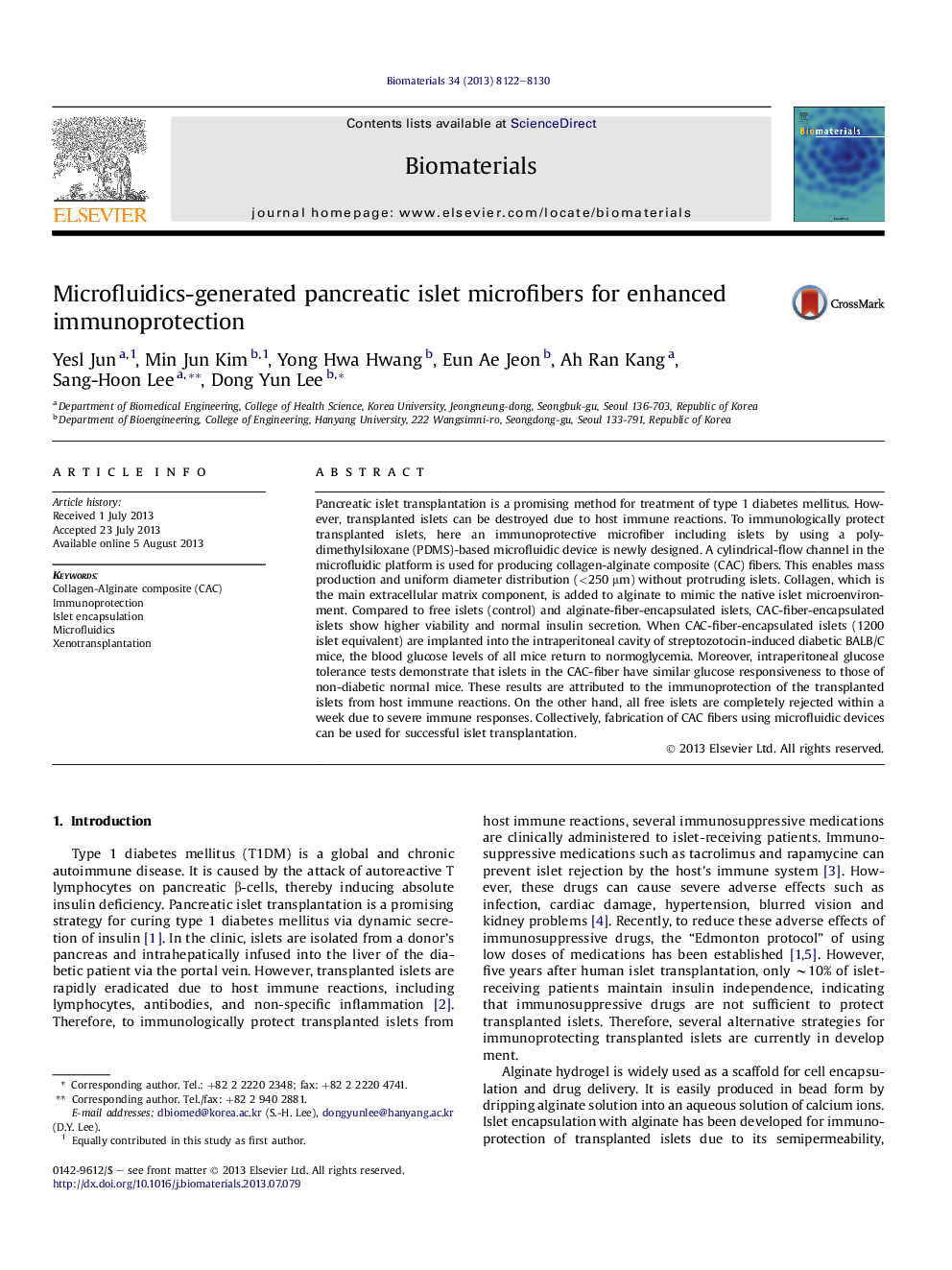| Article ID | Journal | Published Year | Pages | File Type |
|---|---|---|---|---|
| 10228478 | Biomaterials | 2013 | 9 Pages |
Abstract
Pancreatic islet transplantation is a promising method for treatment of type 1 diabetes mellitus. However, transplanted islets can be destroyed due to host immune reactions. To immunologically protect transplanted islets, here an immunoprotective microfiber including islets by using a polydimethylsiloxane (PDMS)-based microfluidic device is newly designed. A cylindrical-flow channel in the microfluidic platform is used for producing collagen-alginate composite (CAC) fibers. This enables mass production and uniform diameter distribution (<250 μm) without protruding islets. Collagen, which is the main extracellular matrix component, is added to alginate to mimic the native islet microenvironment. Compared to free islets (control) and alginate-fiber-encapsulated islets, CAC-fiber-encapsulated islets show higher viability and normal insulin secretion. When CAC-fiber-encapsulated islets (1200 islet equivalent) are implanted into the intraperitoneal cavity of streptozotocin-induced diabetic BALB/C mice, the blood glucose levels of all mice return to normoglycemia. Moreover, intraperitoneal glucose tolerance tests demonstrate that islets in the CAC-fiber have similar glucose responsiveness to those of non-diabetic normal mice. These results are attributed to the immunoprotection of the transplanted islets from host immune reactions. On the other hand, all free islets are completely rejected within a week due to severe immune responses. Collectively, fabrication of CAC fibers using microfluidic devices can be used for successful islet transplantation.
Related Topics
Physical Sciences and Engineering
Chemical Engineering
Bioengineering
Authors
Yesl Jun, Min Jun Kim, Yong Hwa Hwang, Eun Ae Jeon, Ah Ran Kang, Sang-Hoon Lee, Dong Yun Lee,
